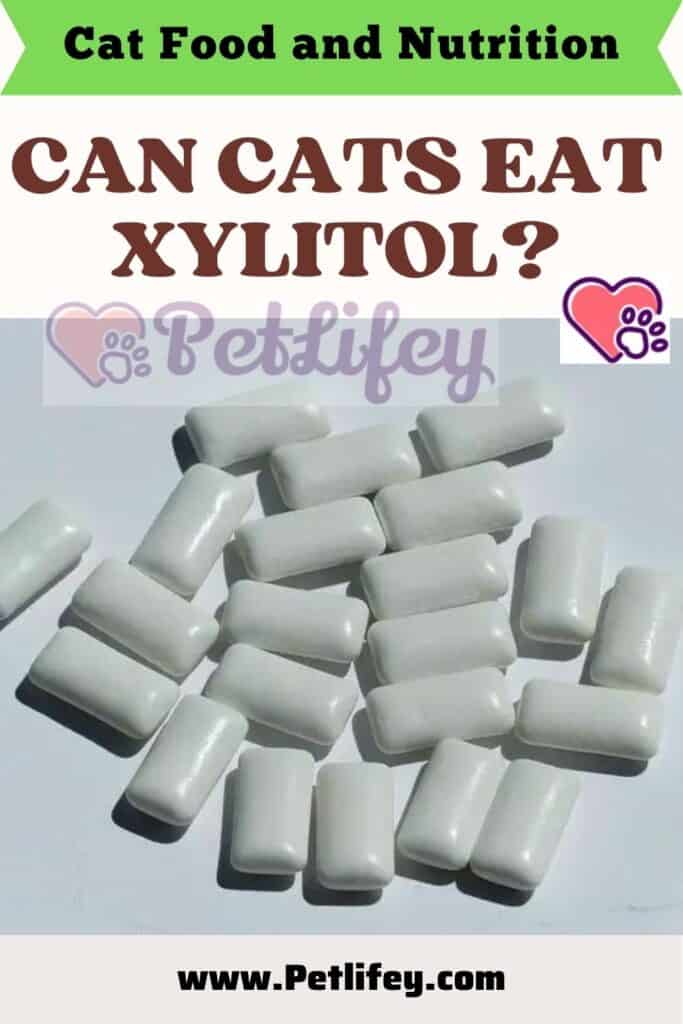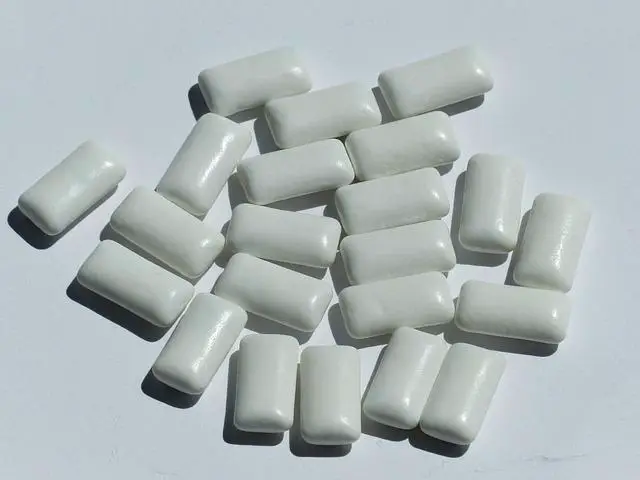
Have you ever wondered if the cat can eat xylitol? Let’s find out in which products it is contained and the possible risks for the cat.
Cat is generally disinterested in sweet foods as his taste buds are not able to recognize the taste: this is because due to genetic modifications he does not have the sweet receptor.
However, being a very curious type, he may want to share with us something we are eating, or attracted by the shape and color of a snack to eat it without our knowledge.
You may be thinking that there is nothing wrong with that, and instead if we want to protect our feline it is good to know that inside some products such as snacks, in fact, and in others even non-food, there may be “ingredients” that are dangerous for the cat. and one of these is xylitol, a natural sweetener.
Let’s find out if the cat can eat xylitol, and above all which products contain it and what can be the dangers for the cat.
Xylitol: what it is and in which products it is found
Xylitol is a natural sweetener extracted from fruits, such as, for example, strawberries and raspberries, but also from wheat, subsequently refined and transformed into a “substance” similar to sugar.
Used mostly in some “light products”, as it sweetens like sugar but has a lower quantity of carbohydrates and calories, xylitol is present in many products of daily use, both food and non-food.
It is commonly used as:
- food sweetener in chewing-gum, breath mints, candies, snacks, various sweets and many more;
- but also in oral hygiene products, such as toothpaste and mouthwashes, for example;
- and in some pharmaceuticals, such as nasal sprays.
We can therefore say that xylitol is certainly present in our homes and that cat could ingest it on any occasion, without our knowledge, during a moment of crazy curiosity and fun. But what if that happens?
Can cats eat xylitol? Dangers for kitty
Xylitol is a harmful ingredient for our four-legged friends (cases of death from xylitol poisoning have been recorded in dogs).
A xylitol poisoning could also be fatal for our cat. It is therefore good to keep all products that contain this ingredient out of its reach to prevent this from happening and safeguard the health of the cat. And before offering him a snack, think carefully about what could happen to him.
We started this article by saying that by nature the cat is not attracted to sweets, because it does not taste them, but this does not mean that we should be careless and offer him a candy or leave him free to wander around the house with chocolate cookies in sight.
If your cat were to ingest a large amount of foods or products that contain xylitol, these are the possible consequences:
- a sudden release of insulin;
- hypoglycemia, i.e. the lowering of the blood sugar level;
- liver failure;
- malfunction of the nervous system, with the possibility of seizures;
- in severe cases, death.
Of course, the toxicity of xylitol is closely related to the quantity of ingested product and the “physicality” of our cat. However, it is better to always be careful.
And if we find that the cat has “stolen” the chocolate bar, let’s take it to the vet immediately: the symptoms of intoxication can appear even after 12 hours, it is better to act preventively.
Symptoms of xylitol intoxication

Generally, the symptoms of xylitol intoxication in cats appear 30 minutes after ingestion, but for some products, such as some chewing gums, they can appear 12 hours after ingestion.
The most common symptoms for this type of poisoning are:
- vomiting and nausea;
- apathy;
- difficulty standing up;
- reduction of motor activity;
- loss of coordination;
- chills and tremors ;
- convulsions;
- collapse.
If we also notice one of these symptoms in a cat, believing it to be xylitol intoxication, we absolutely must:
- do not make him vomit: in case of hypoglycemia we will only worsen the situation;
- take him to the vet immediately: thanks to our indications, he will be the one to treat the cat with the most appropriate therapy for the case.
Fortunately, the cat’s “non-attraction” to sweet foods makes us breathe a sigh of relief, because it is less likely that all this will happen, in fact to date no cases of xylitol poisoning have been recorded in cats.
But this must not make us “let our guard down”, so better not take the risk, do you think?






